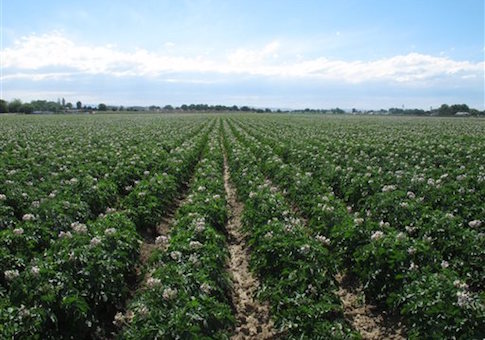The U.S. Department of Agriculture is spending nearly $1 million to teach refugees how to farm.
New grants announced last week include two projects in Idaho and Kansas to "cultivate the next generation of farmers" by helping refugees get land leases to start their own farms.
The first project was awarded to Global Gardens, a Boise, Idaho-based organization that teaches refugees about farming and community gardening. The group will train refugees and Native Americans about organic vegetable farming.
"Global Gardens trains beginning farmers who have cultural, linguistic, or economic barriers to success which might prevent them from otherwise becoming successful farmers or accessing more mainstream farmer training programs," the project grant states. "Our long-term goal is to create sustainable, profitable, independent small farm businesses."
Project goals include assisting refugees in securing land leases on incubator farms, teaching refugees "financial literacy," and providing nine paid internships on a farm.
"Expected outcomes include increases in knowledge of sustainable vegetable production, marketing, and financial literacy for participating farmers, establishment of new, refugee and Native-owned farms, and increased productivity and farm income for those already farming," the grant said.
The project has received $597,867 and will continue through July 2019.
A second project titled "New Roots for Refugees" was awarded to Catholic Charities of Northeast Kansas. The project will create an incubator farm for newly settled refugees.
"The long term goal is that refugees farm in Kansas City independently on land that they own or lease at a scale that they desire and manage," according to the grant. "To reach this goal, we have identified the following objectives: Removal of Barriers to Marketing, Adapted and Increased Agricultural Skills, Financial Management and Farm Capitalization, and Whole Farm Planning."
The Kansas project will also provide leases to refugees so they can "establish a path toward managing their own farm business."
"The long term goal of New Roots for Refugees is that refugees will farm independently on owned land or through lease agreements at a scale that they desire, achieve, and manage," the grant said.
The grant is worth $380,433, bringing the total cost for the two projects to $978,300.
Idaho has one of the highest refugee populations in the country, taking in 1,000 each year, the majority of which are resettled in Boise.
Kansas takes in roughly 350 refugees per year, mostly from Iraq, Bhutan, and Myanmar.
